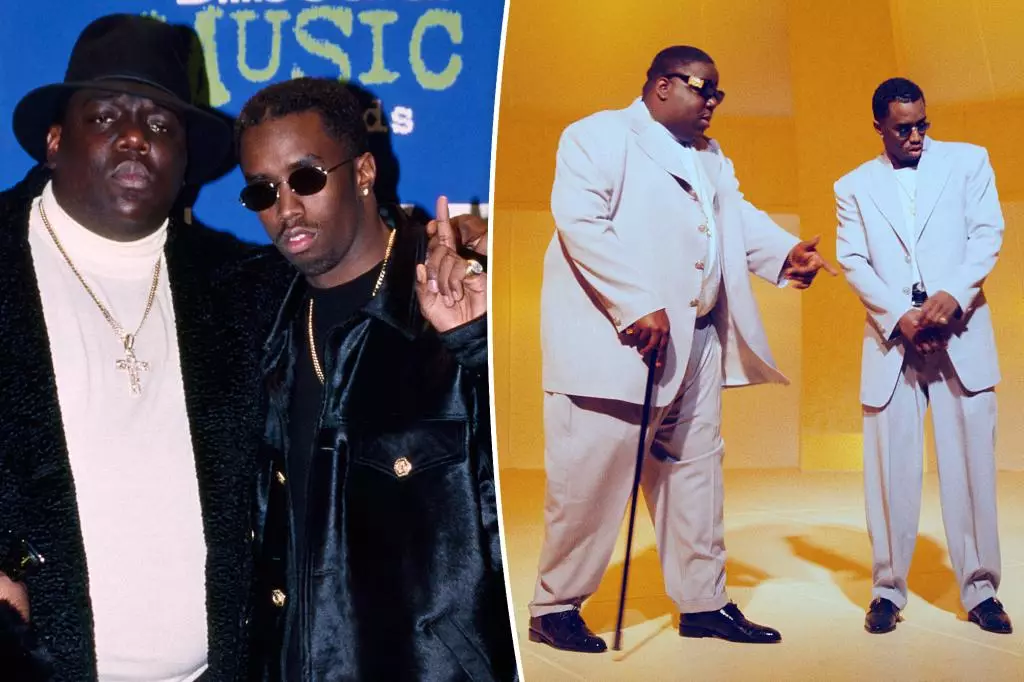In today’s fast-paced world of celebrity culture, public figures often find their reputations under siege from sensational headlines and unverified claims. The recent case involving Sean “Diddy” Combs exemplifies a broader issue: the perilous effects of false accusations and the importance of resilience in the face of adversity. While allegations can temporarily tarnish a reputation, it is the unwavering conviction in one’s integrity that ultimately defines true character. Leading figures must navigate the turbulent waters of misjudgment and misinformation, refusing to allow baseless claims to undermine their legacy.
This situation underscores the necessity for critical discernment. Diddy’s legal team, for instance, vigorously defended his innocence, emphasizing his prior acquittal on serious charges as proof of his credibility. This illustrates that credible resilience involves not just persistence but also evidence-based confidence. It is vital that individuals facing accusations maintain a steadfast belief in due process and justice, recognizing that superficial judgments often lack foundation. Resilience, in this context, isn’t about denial but about persevering through challenges while upholding core principles.
Leadership Under Scrutiny: The Role of Integrity and Accountability
Leaders and influential personalities are inherently scrutinized; their actions and words are dissected with relentless intensity. Yet, true leadership is demonstrated not merely in success but in the capacity to uphold moral integrity amidst controversy. Combs’ case reveals a critical truth: reputation management extends beyond public relations. It hinges on moral clarity and accountability. When individuals in positions of power are falsely accused, they must respond with transparency, resilience, and a commitment to truth.
Standing firm against false narratives is an act of strength. It communicates to followers and critics alike that integrity cannot be compromised by temporary allegations. Moreover, accountability involves a willingness to confront accusations head-on, providing clarity and transparency without succumbing to hysteria or undue influence. The ability to rebound from false assaults not only bolsters a leader’s credibility but ultimately affirms their role as a resilient figure who refuses to be defined by momentary misjudgments.
Resilience as a Moral Imperative in Modern Society
Living in an era dominated by instant news and social media, the capacity for resilience has become a moral imperative. As misinformation spreads rapidly, individuals and institutions must cultivate mental fortitude, patience, and unwavering belief in truth. The power to withstand slander and falsehoods is fundamental to maintaining one’s dignity and societal standing. Public figures must accept that blistering accusations, whether true or false, are part of their reality, and their response must be rooted in resilience and unwavering integrity.
Moreover, society itself benefits from models of resilience. When leaders confront adversity with honesty and steadfastness, they set a standard that discourages baseless defamation and promotes justice. It also emphasizes that personal character and perseverance are more enduring than temporary scandals. True resilience involves not just surviving the storm but rising above it, demonstrating strength of character, and reinforcing the idea that integrity is the cornerstone of authentic leadership.
Lessons in Personal Growth and the Value of Inner Strength
More than anything, the current discourse teaches us that resilience is a deeply personal journey. It calls for an internal well of strength that can withstand external assaults. Each challenge faced—whether a legal battle or public smear—becomes an opportunity for growth. Leaders who embody resilience show us that character is forged in the crucible of adversity. Their journey encourages all of us to prioritize moral integrity over fleeting fame or superficial success.
Furthermore, resilience fosters a sense of empowerment, reminding individuals that external circumstances do not dictate self-worth. In resisting false accusations, those with true resilience demonstrate that dignity and truth can prevail despite temporary setbacks. This lesson is invaluable for anyone seeking to lead a meaningful life: integrity, perseverance, and moral fortitude are the true marks of leadership. They are the qualities that define character, withstand scrutiny, and ultimately inspire others to be resilient in their own lives.
In essence, the narrative of resilience challenged and rightly defended reveals that authentic leadership is about unwavering conviction in the face of relentless adversity. It’s about standing tall amidst the storms of falsehood, guided by principle and inner strength. And it is within this resilience that true power resides—transforming personal trials into opportunities for moral growth and societal inspiration.

